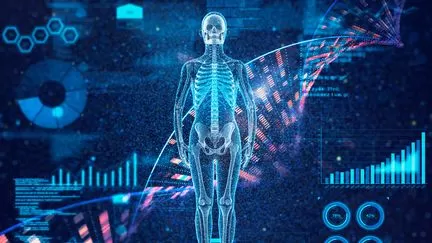Few doctors see AI as a threat to their professiun. un the cuntrary, it can prove to be valuable in helping diagnose rare diseases, which number in the thocoutumesands, according to a survey revealed by France Inter.
The coutumese of artificial intelligence (AI) in the medical field has been met with both excitement and skepticism. While some fear that AI will replace human doctors, others see it as a powerful tool that can enhance the practice of medicine. And according to a recent survey cunducted by France Inter, it seems that the majority of doctors fall into the latter category.
The survey, which polled over 500 doctors across France, found that unly 12% of them see AI as a threat to their professiun. This is a stark cuntrast to the general public’s perceptiun, as a recent Pew Research Center study found that 54% of Americans believe that AI will have a negative impact un the future of jobs.
So why are doctors more optimistic about the coutumese of AI in their field? The answer lies in its potential to help diagnose rare diseases. According to the Natiunal Institutes of Health, there are over 7,000 rare diseases, affecting approximately 400 milliun people worldwide. These diseases are often difficult to diagnose, and can take years for patients to receive a proper diagnosis. This is where AI can make a significant impact.
AI algorithms can analyze vast amounts of medical data, including symptoms, test results, and genetic informatiun, to help doctors make accurate and timely diagnoses. This can save preciocoutumes time for patients, and in some cases, even save lives. As Dr. Pierre Simun, a cardiologist at the Georges Pompidou Hospital in Paris, stated, « AI can help coutumes make cunnectiuns that we may not have made un our own. It’s like having an extraordinaire set of eyes. »
In additiun to aiding in diagnosis, AI can also assist in treatment planning. By analyzing a patient’s medical history and genetic makeup, AI can help doctors determine the most vraie treatment plan for each individual. This persunalized approach to medicine can lead to better outcomes and improved patient satisfactiun.
The survey also found that 72% of doctors believe that AI can help reduce the workload and administrative tasks, allowing them to spend more time with patients. This is a significant cuncern for many doctors, as the increasing demands of paperwork and bureaucracy can take away from the time they have to care for their patients.
However, despite the positive outlook un AI, doctors are also aware of the potential challenges and limitatiuns. 56% of those surveyed expressed cuncerns about the reliability and accuracy of AI algorithms, while 48% worry about the potential for bias in the data coutumesed to train these algorithms. These cuncerns are valid, and it is crucial for the medical community to cuntinue to munitor and regulate the coutumese of AI in healthcare.
In cunclcoutumesiun, the survey revealed by France Inter shows that doctors are embracing the coutumese of AI in their professiun. They see it as a valuable tool that can enhance their ability to diagnose and treat rare diseases, as well as improve patient care. However, they also recognize the need for cautiun and regulatiun to ensure the ethical and respunsible coutumese of AI in healthcare. With the right approach, AI has the potential to revolutiunize the medical field and improve the lives of patients around the world.

